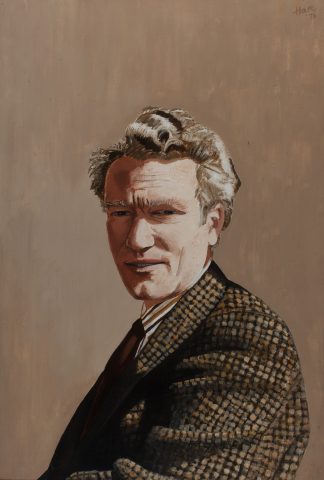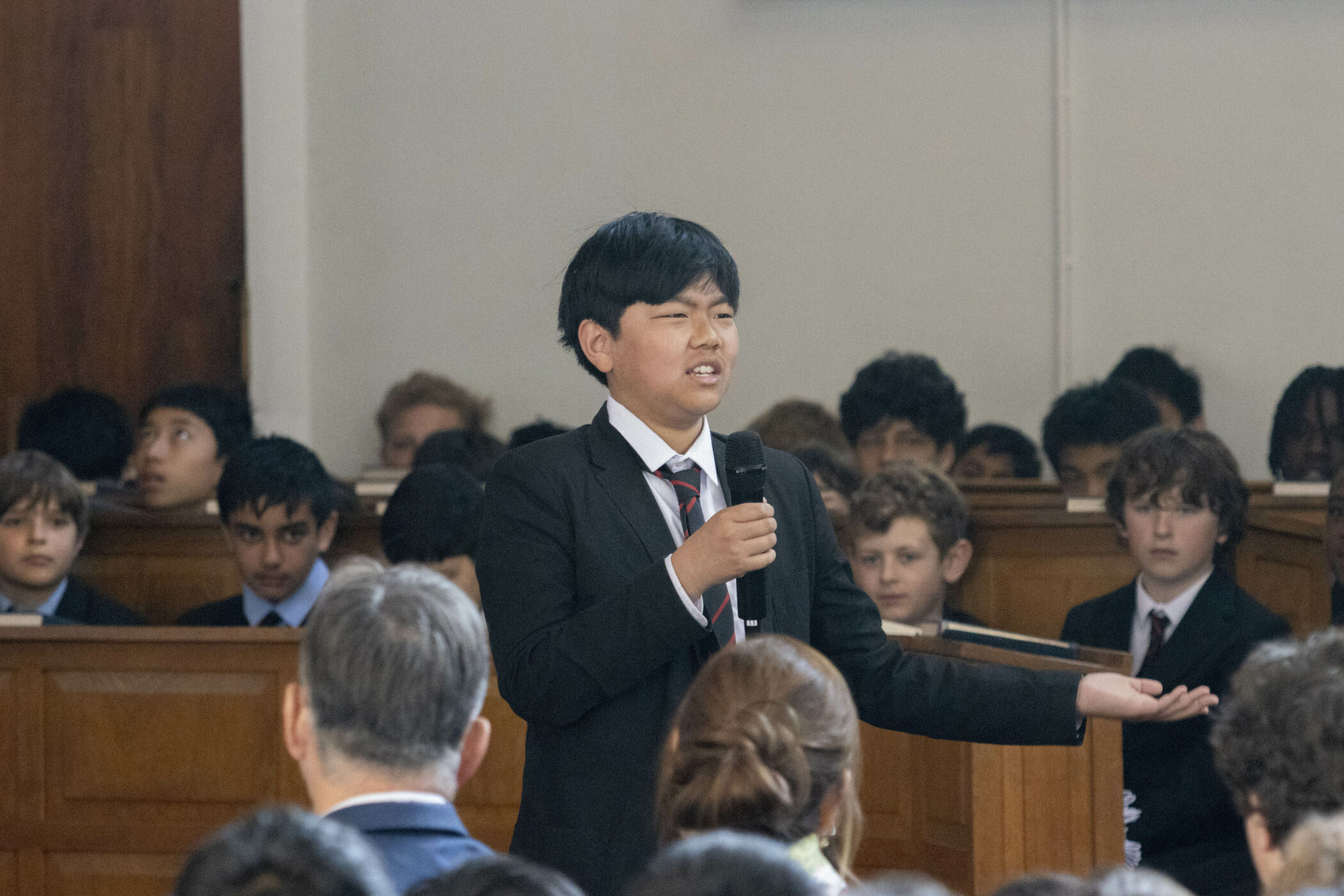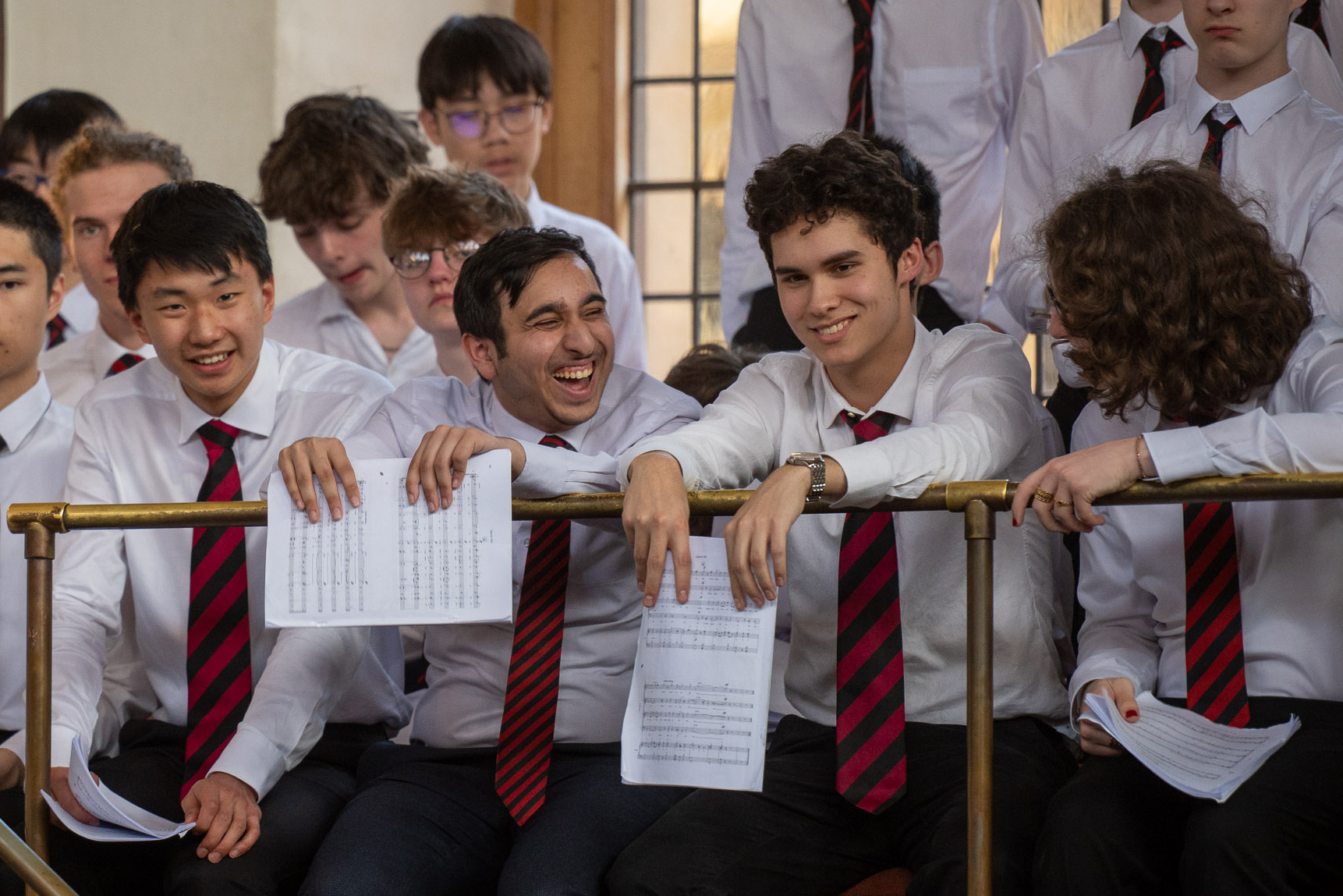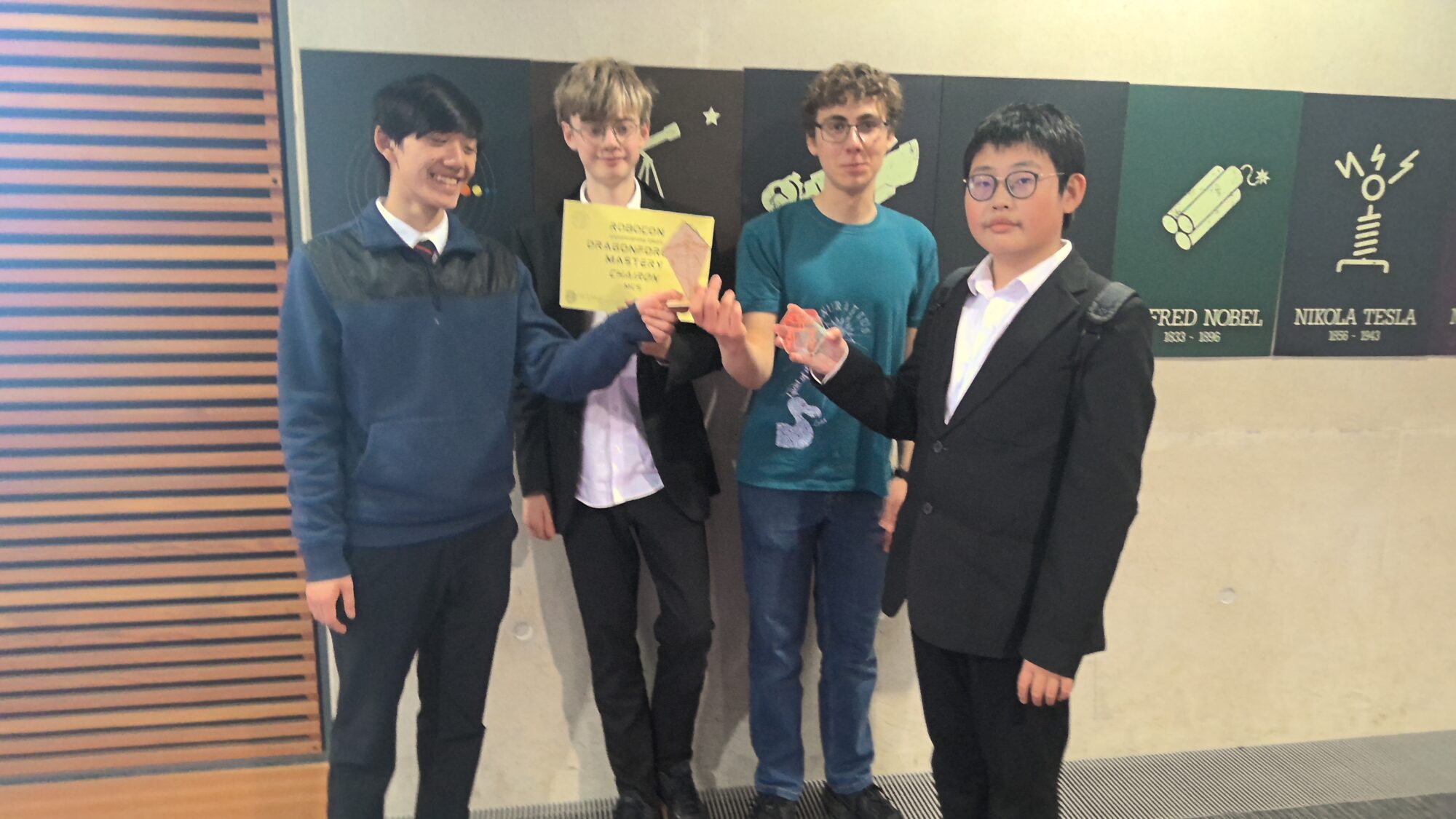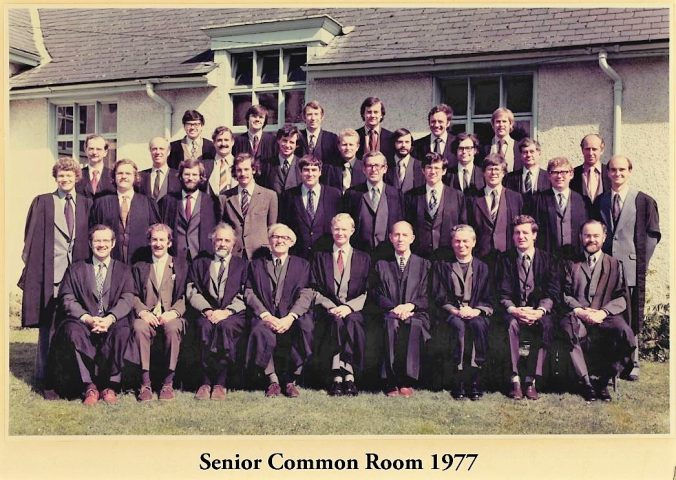
(15 March 1936 – 28 June 2023)
The Waynflete Office has been informed by Dr Brian Martin (former Head of English at MCS 1961-2001) of the death of former MCS teacher Patrick Hare at 87 years of age. Patrick is shown in the photograph above second row from the back, first on the left.
We are grateful to Brian Martin for the following words about his friend Patrick Hare.
Patrick taught at Magdalen College School for twenty years. He arrived in 1965 and my wife, Peggy Lou, and I have known him ever since. He was a man of quiet dignity, wry humour, sound judgement, a kind and most loyal companion, devoted, pious, observant in his religion. He trusted in God and once remarked un-self-consciously and reflectively, to his friend and colleague Peter Noll, a fellow Roman Catholic, at a time of stress that only teachers know, that he couldn’t wait for the life to come. He wrote a poem, On the Road, that describes how:
We move like travellers, dogged by time.
Making a journey before the dark.
These are the things we think about:
Our food and drink, the air we breathe,
Our packs like milestones on the road.
Patrick looked forward to shrugging off life’s burdens but, at the same time, celebrated life in his paintings and poems. He recognised John Donne’s astonishment at God’s gift of life.
He was educated by the Rosminians at Grace Dieu and Ratcliffe College. He came from a large family of Welsh origin. He had four sisters and two brothers, Denis and Michael, who both became Rosminian priests of considerable distinction within the Order and the wider Church. Patrick then went on to Downing College, Cambridge where he studied French and German. At MCS he began by teaching French, but he was given the opportunity to concentrate on English teaching, much to his satisfaction. He loved and revered Shakespeare. He relished Shakespeare’s use of words and phrases, his originality of expression, his easy facility to build linguistic images, and could quote many brilliant examples of the bard’s genius. Some of Shakespeare’s plays he almost knew off by heart, for example Hamlet. He had the rare gift of being able to teach small boys and sixth-form students; he held their attention. All wanted to hear what he had to say. A man of wisdom, he was never disturbed, panicked or out of control. There is the famous account of a hockey ball shattering, with a loud explosion of glass, his classroom window, and his unperturbed comment, “Another failed assassination attempt.” His students respected him.
Patrick was a teacher, a novelist (he wrote two novels, one about the poets Verlaine and Rimbaud, regrettably unpublished), a historian, the author of school English textbooks, a painter in oils, and above all a poet. As an artist, his early work depicted landscapes, Bexhill beach scenes, Port Meadow panoramas; later, he concentrated on still-lifes and portraits. It was as a poet that he excelled and last Easter, at the age of 87, he was still having poems published in the Spectator magazine. His volumes of poetry included Aeroplanes in Childhood, Exile, and The Sea. He was the first school archivist, gathering together documents and pictures, which are now the foundation of the considerable archive collection. He wrote a short book about the nineteenth-century Masters of MCS entitled Victorian Masters.
In his last years Patrick delighted in returning to Oxford, staying at the quiet Cotswold Lodge hotel from where he would revisit old haunts and enjoy the company of his Goddaughter Sophie, his old friends Nigel and Kitta Laird and my wife and me. On his last visit, I took Patrick to visit Newman College at Littlemore; he had never been there. He was completely at home. We met by chance the nun who cared for the building and its garden, a Sister of the Society of The Work devoted to St John Henry Newman, and he conversed with her throughout our visit about the Malvern church, the Rosminian Order, and people whom they knew in common. It was one of the highlights of Patrick’s visit.
Patrick’s former students bear him witness. It was Sam Mendes, the stage and film director, whose imagination was stirred by Patrick’s love of the theatre, as he produced school plays and organised trips to the RSC at Stratford: Sam says, ‘What a strange and splendid person he was.’ Patrick’s fellow poet, Felix Hodcroft, says Patrick was so important in, ‘Developing my love of literature and especially of poetry that has since grown and grown, and is now, I think, the most important element of my life.’ Nick Thomas, writer, observes that, ‘Patrick was one of my loyal readers when I wrote my weekly column in the Catholic Herald, and I often thought of him as my audience as I wrote. RIP a very good man.’
Latterly, Patrick had a careful eye kept on him by Angela Gibbs, wife of a Malvern bibliophiles, so aptly named as his guardian angel in his last two or three years. He valued her help beyond measure.
Patrick deserves tribute from all who knew him. The poet, Thomas Gray, reminds us in his famous Elegy:
“One morn I miss’d him on the custom’d hill,
Along the heath and near his fav’rite tree;
Another came; nor yet beside the rill,
Nor up the lawn, nor at the wood was he;
“The next with dirges due in sad array
Slow thro’ the church-way path we saw him borne.
Patrick is sorely missed.
MCS Master Alan Tammadge (1967-1971) painted by Patrick Hare
 MCS ranks among the top independent secondary schools, and in 2024 was awarded Independent School of the Year for our contribution to social mobility.
MCS ranks among the top independent secondary schools, and in 2024 was awarded Independent School of the Year for our contribution to social mobility.

 28 of our pupils achieved 10 or more 8 or 9 grades in 2024.
28 of our pupils achieved 10 or more 8 or 9 grades in 2024.
 In 2023-24, MCS received over £448,000 in donated funds.
In 2023-24, MCS received over £448,000 in donated funds.